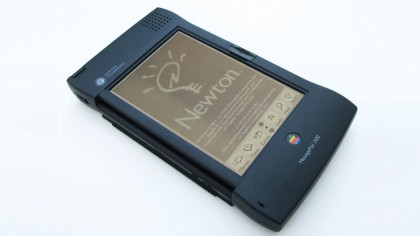Has Ubuntu lost it?
Some say Canonical has lost its way. Are they right?
Sign up for breaking news, reviews, opinion, top tech deals, and more.
You are now subscribed
Your newsletter sign-up was successful
The reason for this is that all three of them (Canonical, Red Hat and SUSE) are businesses, not charities. In a perfect world, Canonical would employ vast numbers of kernel developers and push all their changes upstream, and Red Hat Enterprise Linux would be free to download (yes, we know Centos is free, but that's in spite of Red Hat's efforts, not because of them).
The point we're getting at is that every Linux company has to make compromises. It's almost ten years since Ubuntu launched, and the Linux desktop's been getting better at a slow-but-steady rate. There's nothing wrong with that, but sometimes you need to shake things up to get to a better place, and you can't shake things up with community consensus.
As Henry Ford said: "If I had asked people what they wanted, they would have said faster horses." To get past a certain threshold, you need someone to step in and say how it has to be done. When we have the benefit of hindsight, we either laud these people as visionaries or deride them as fools, but at the time, before the dust settles, they're always treated as trouble makers.
Unity is just such a shake up. It challenges us to think about what makes a good desktop, and about whether we're using our computers in the best way. Even if it ultimately fails, we as a community will be a bit wiser about how to make good interfaces.
The plurality of desktop options on Linux means they can try this without taking any other choices away from users. After all, it wasn't Canonical that stopped GNOME 2, it was GNOME themselves. If you don't like Unity, KDE, Xfce, LXDE and (as of the most recent release) GNOME Shell all have official Ubuntu versions.
Unity brings us nicely along to Mir, Canonical's other controversial graphical project. We're not going to make excuses for Canonical: it was wrong of Canonical to spread misinformation about Wayland when it announced Mir. We hope it was an honest mistake rather than a deliberate attempt to spread fear, uncertainty and doubt about the alternative system, but even if it was a mistake, Canonical must have known that the information would be widely circulated, and should have checked their facts were completely accurate.
However, just because there was some wrong information in the public announcement doesn't mean that the entire idea behind it is wrong. We weren't privy to the discussions within Canonical about why it needed to do it.
Sign up for breaking news, reviews, opinion, top tech deals, and more.
However, now it's decided that it does need to do it, it's gone about it in a way that should mean a minimum of duplicated work for applications. It's implementing Qt and GTK bindings, and providing legacy support for X. Hopefully, this means that the extra work involved is on the part of Canonical.
Beyond the desktop

Apple released a tablet. You may have heard of it - it's called the Newton. To be honest, it didn't set the world on fire, and it gradually faded into obscurity and ceased production in 1998.
Naturally, Apple realised that it couldn't do hand-held devices and didn't try again. If that were true, we'd be living in a very different world today. Maybe we'd all be using Blackberries, maybe Nokia would have finally committed to a Linux-based phone, or maybe we'd all be using feature phones that had batteries that lasted two weeks and played Snake 2. We'll never know because that's not what successful companies do. It's not what successful people do.
If we want Linux to succeed, it shouldn't be what we want Linux developers to do. Ubuntu TV hasn't been a success yet, but that doesn't mean it was a bad idea to try it, and it certainly doesn't mean that Canonical should stop trying new things.